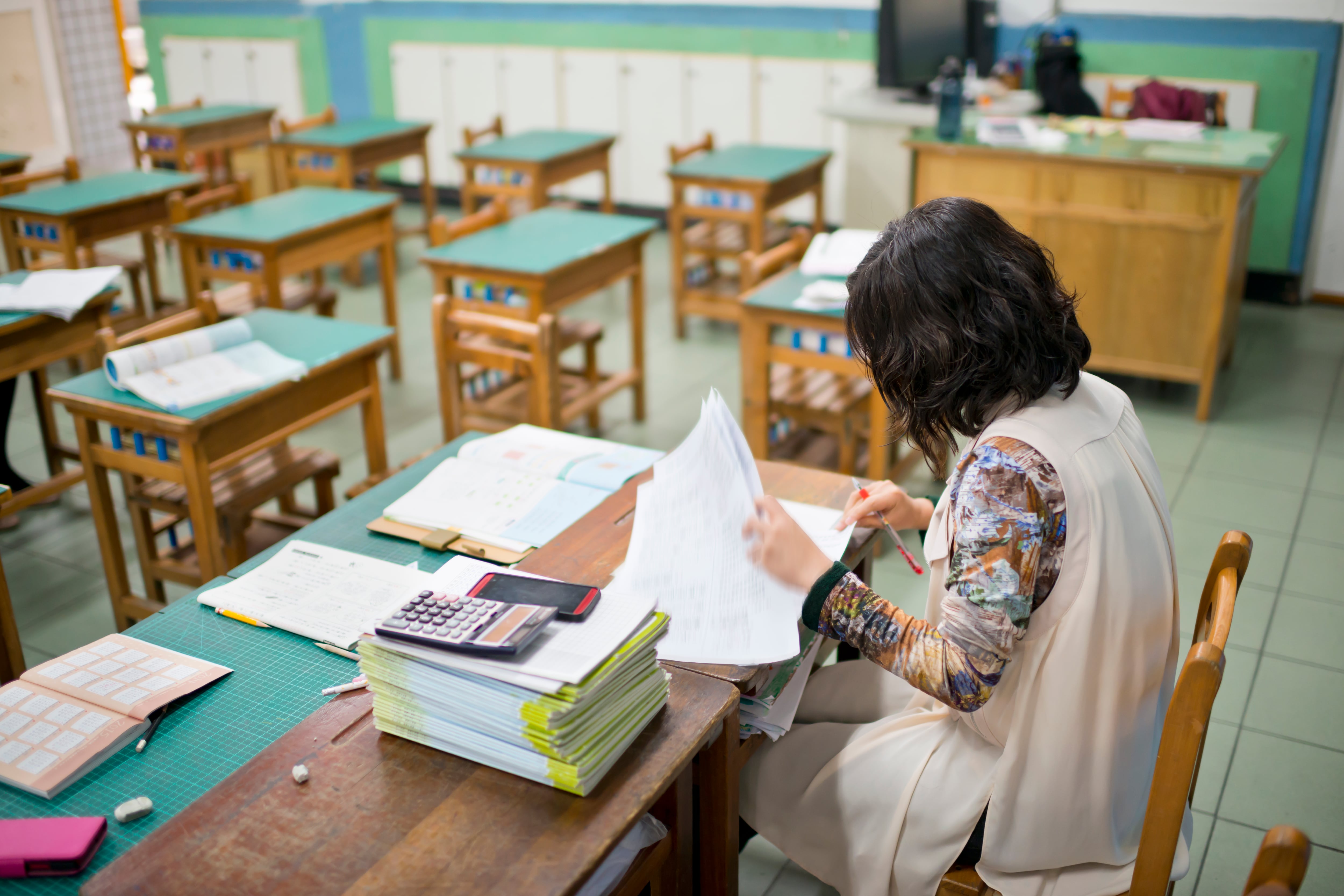Few school years have been tougher for Newark teachers than this one.
They’ve had to contend with student learning loss and behavior issues, swelling class sizes and staff shortages, curriculum changes and COVID restrictions. Oh, and they aren’t getting bonus pay.
“There is zero morale in the building,” one Newark educator told Chalkbeat in a recent survey. “We need help,” another wrote.
Chalkbeat conducted the online survey this month to find out how Newark students and school staffers are faring this school year. The findings don’t reflect the views of all nearly 6,000 district employees. Yet the responses do offer a window into the extraordinary challenges that schools are facing, plus a few bright spots.
Here’s what we found.
Teachers are tired.
Nearly 60 Newark school staffers shared what it’s been like since classrooms reopened this September. A common theme is that people feel exhausted, and are holding on for winter break.
“This year is nothing like the other years,” one educator wrote. “It is extremely difficult.” (Chalkbeat is withholding respondents’ names and schools to protect them from retaliation.)
District data shows that the number of instructional employees who quit or retired from May to October is up 16% compared with last year.
“More teachers are quitting,” one person wrote. “Our principal is struggling to find qualified certified teachers to replace the ones we have lost or are losing.”
“Teacher morale is not good,” another educator added, “and I am concerned that some colleagues may decide to change careers.”
Some people are worried about how this turnover will affect students.
“If we become ill/stressed/overwhelmed because of the workload,” a teacher wrote, “who will be here to educate our students?”
Schools are facing acute staff shortages.
Schools across Newark continue to struggle with worker shortages, the survey found.
Nearly 90% of respondents said their schools do not have enough teachers, 64% said they have too few custodians, 45% said the same about food service workers, and 38% cited a shortage of security guards.
“Our biggest challenges are staff shortages,” one educator wrote.
The lack of teachers and substitutes has placed an extra burden on some staffers.
“Almost every teacher must substitute at least one free period (sometimes more) just to make sure classes have coverage,” an educator said.
“I’ve already subbed 9 full days and 1 partial day to cover when folks are out,” added a special education teacher.
Some said class sizes have soared.
“My classroom is very crowded!” said a kindergarten teacher, adding that her room has just 22 desks for 35 students.
The staffing crunch has even affected school lunches.
“We are short staffed and the quality of the food has changed tremendously,” a cafeteria worker wrote, “to the point where the students don’t even eat.”
And the scarcity of custodians has left some buildings in bad shape.
“Very often the classroom and the bathroom is not even swiped or the trash [taken] out,” said one teacher. Another reported litter in the “staircases, hallways, classrooms and bathrooms.”
Students are struggling.
Now that students are back in classrooms, teachers can see the scars left by remote learning.
Nearly 83% of survey respondents said students are facing academic difficulties this school year, 81% said student behavior is a problem, 75% said students are struggling with mental health, and 63% cited attendance issues.
“Student behaviors are the worst I’ve ever seen in the 11 years I’ve worked here,” one educator wrote.
“Students are fighting constantly,” added another staffer. “The cutting is out of control.”
A teacher grant ruffled some feathers.
Some school districts gave bonuses to every teacher during the pandemic in recognition of their hard work.
By contrast, Newark had teachers complete a lengthy application just to receive a $1,000 grant for classroom supplies. Many teachers were not pleased.
“I did not do the grant application because I believe we do not need to beg for a grant that we rightly deserve,” one survey respondent wrote. “These teachers deserve bonuses, not a 6 page application for grants for things they need,” another person said.
A different educator said her school gave teachers just two days to complete the application.
“Not only was the paperwork tedious and overwhelming at that time,” she wrote, “but after completing the order I was told that I personally needed to contact each vendor myself to place the order and get the invoice.”
However, at least one teacher said he appreciated the grant.
“I used it to purchase supplies that I otherwise would do without or I would buy them myself,” he wrote. “I hope this stipend continues in the future.”
Not everything is bad.
The scores of people who took the survey aired many grievances. Yet they also expressed gratitude.
Several teachers praised their school administrators and colleagues.
“In Newark, the few teachers who have stayed are sticking together and trying to make it work,” one person wrote.
But the most common source of strength and hope that school staffers cited are the people they serve.
“Students are the best part of the return,” one teacher wrote.
“The children are a joy to be around,” another added. “They keep me smiling.”







